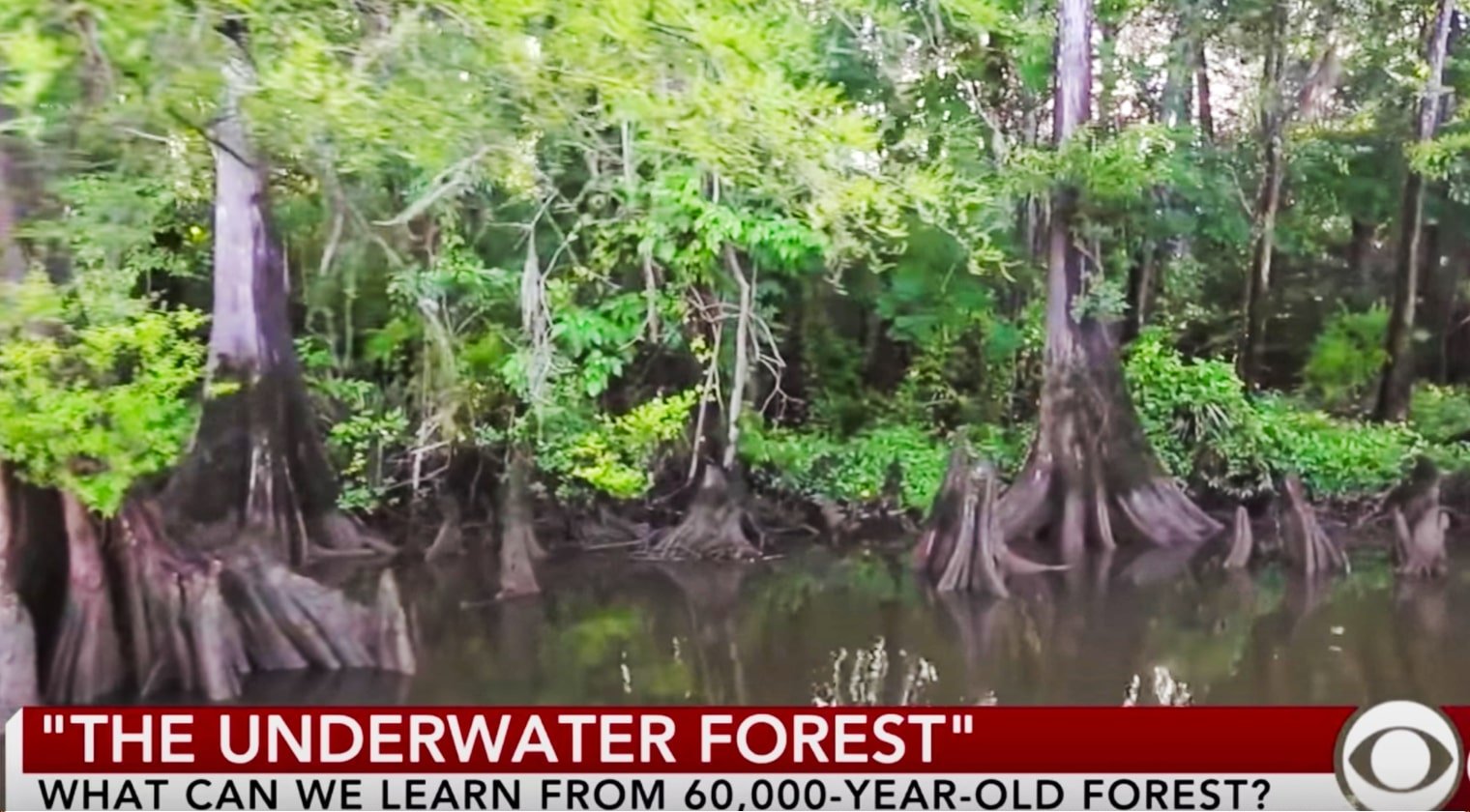60,000-Year-Old Forest Discovered Underwater – Preserved Trees May Help Create New Medicines
on Sep 02, 2020 • Updated Jan 15, 2025

Scientists have discovered an underwater forest of buried cypress trees off of the Gulf of Mexico that dates back 60,000 years – around the same time that humans first ventured out of Africa.
Over thousands of years, the cypress trees grew old, died, and fell, and became buried under layers and layers of sediment. In 2004, Hurricane Ivan hit the Gulf Coast, sweeping away much of the sediment that covered the ancient trees.

Brian Helmuth, a professor at Northeastern University, was one of the first to dive in to explore the remains of trees that have lasted for millennia.
Helmuth said, “It was a really nice day. Pretty calm on the surface and we were expecting it be equally nice on the bottom… But we got to the bottom and it was like diving in chocolate milk. We literally could not see our hands in front of our faces.”
The conditions were less than ideal for diving, with sharks swarming the waters.
Bacteria called shipworms live in wood in the ocean and scientists have never been able to study shipworms from wood this old.
According to researchers studying the wood samples, they’re working on applying what they learn from the shipworms to create new antibiotics for parasitic infections, pain medications, anti-cancer drugs, and fine chemicals and renewable fuels.
Check out the video below for more info on this incredible find!












